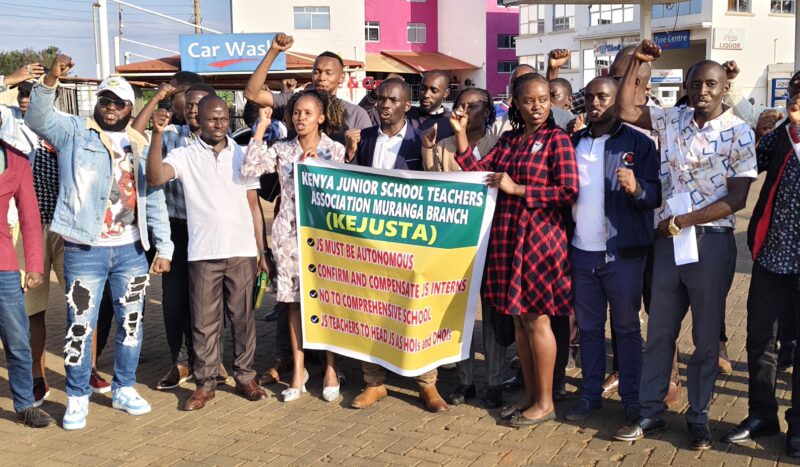Three years after the rollout of the junior school segment, teachers across the country are voicing strong concerns over their treatment and working conditions. Many feel unsettled, under-resourced, and overwhelmed by heavy workloads. Their main call: to be delinked from the administration of primary schools where they are currently domiciled.
The decision to house junior schools within primary institutions was based on recommendations from the Presidential Working Party on Education Reforms. However, teachers argue that the arrangement has led to constant conflict with head teachers, who manage both sections, and confusion over roles and responsibilities.
Over the weekend, scores of junior school teachers in Nyeri town staged protests led by the Kenya Union of Post Primary Education Teachers (KUPPET) and the Nyeri Junior School Teachers Association. They demanded recognition of junior schools as standalone institutions, with their own administration and budgets.
According to interim association chairperson Peter Kimathi, most junior schools are severely understaffed, leaving teachers forced to teach subjects outside their expertise. He noted that many educators were first hired as interns before confirmation, further destabilizing their professional growth.
Cases of mistreatment have also emerged in counties like Kwale and Bungoma, where teachers allege being assigned non-teaching duties, including kitchen work. KEJUSTA national chairperson James Odhiambo said such incidences were stripping teachers of dignity, forcing them to push harder for autonomy.
Teachers also point to the lack of clear career progression pathways and inadequate resources, such as labs, libraries, and stationery. “Most schools provide little to no teaching materials, forcing teachers to buy their own,” Odhiambo lamented.
The push for independence is also tied to co-curricular activities. Teachers claim junior learners are denied equal participation when schools are treated as one unit, as was seen in sports competitions.
KUPPET leaders have threatened court action if the Ministry of Education fails to recognize junior schools as distinct institutions. According to Kwale executive secretary Leonard Oronje, only a separate structure would align with the 2-6-3-3 competency-based curriculum.
Despite proposals by the Teachers Service Commission to create comprehensive schools headed by principals with deputies for both segments, teachers remain unconvinced. They insist the solution lies in autonomy, which they believe will restore dignity, fairness, and effective delivery of the new curriculum.





